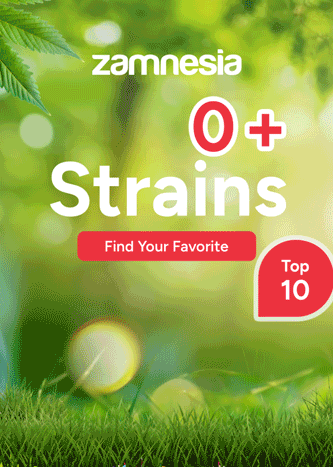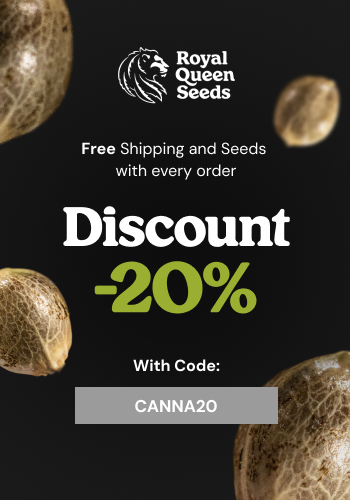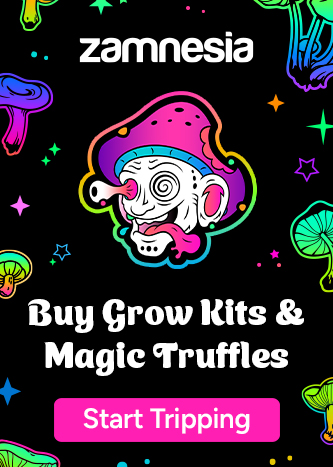Is marijuana addictive?

Cannabis isn't a deadly drug, but is it addictive? While it may not present the same scary symptoms as other drugs, it's believed that cannabis abuse is a more common issue than one might think.
IS CANNABIS ADDICTION FACT OR FICTION?
When it comes to cannabis, one question often pops up: is it addictive? Although many consumers say “no way”, there are some who will tell you it is. As it turns out, there are a few reasons why someone could become addicted to marijuana. The chances are slim; however, the possibility is very much real.
According to a study referenced by the National Institute on Drug Abuse, roughly 9% of cannabis users will become dependent on it. Other studies suggest even higher rates of abuse, especially among individuals who started using cannabis early on in their adolescence, or those predisposed to addictive behaviour.
On the contrary, there are also millions of people who use cannabis, and benefit from doing so, without becoming addicted. From controlling anxiety to relieving pain, marijuana is very much medicinal. So, who is likely to become addicted to cannabis, and why?
CRITERIA FOR CANNABIS ADDICTION
According to Dr S. Alex Stalcup of New Leaf Treatment Center, one of the strongest predictors of addiction is genes. In fact, there are studies of identical twins brought up by different families that confirm this speculation. In other words, if one twin becomes addicted, the other is at a greater risk as well.
However, it turns out that family ties can also help prevent addiction. Carl Hart, Ph.D., Associate Professor of Psychology at Columbia University, mentions some criteria that he looks for when it comes to addiction:
"When we look at the criteria for addiction, it has a lot to do with people tempering their behaviour. It has a lot to do with responsibility skills. It’s not perfect, but when you look at the people who are addicted, and you look at people who have jobs and families, they have responsibilities, they’re plugged into their societies, they have a social network, the addiction rates within those kind of groups are dramatically decreased from people who are not plugged in with jobs, families, social networks”.
THE TEMPTING REALITY
Furthermore, those who aren't addicted often have options as well. During an interview with Healthline, Gantt Galloway, Pharm.D., Executive and Research Director of the New Leaf Treatment Center, and Senior Scientist at the California Pacific Medical Center Research Institute, said:
“Most of us have a lot of choice in life of things that make us feel good”.
“Those who have fewer choices, who perhaps don’t have as rich a set of social interactions because their family life is difficult or because they have emotional problems that are stopping them from forming close friendships ... those people may find drugs such as marijuana more attractive and be at greater risk for addiction”.
"For a lot of individuals, marijuana is pleasurable, reinforcing, and reliable", Galloway added. "If you’re talking about someone who has a chaotic home situation, someone who isn’t doing well in school, who isn’t getting praise for good school performance, those people may be at higher risk to use marijuana and to have problems with it”.
As a matter of fact, the theory that having greater choice can help prevent addiction is supported by animal studies. What they have shown, in particular, is that when you put rats into a box with a lever that releases drugs like opiates or cocaine, rats will continuously push on the lever. However, when you bring them to a "rat park" full of toys and a couple of rat pals, they prefer drug-free water over the laced water.
MENTAL ILLNESS
Another factor worth noting is mental illness, which plays a large role in addiction risk. Mental illness has both genetic and environmental causes. Dr Stalcup also confirms the idea:
“Drugs work very well, at first, for mentally ill people. If you’re anxious, it’ll go away with a couple of hits, a beer. It’s like magic. But then, the tolerance sets in. So, not only do they need to drink more to relieve the anxiety, but every single time they try to stop, the underlying anxiety comes back worse. We conceptualise it as a biological trap. It works at first, it turns on you, it stops working, and then you still have a problem".
“Stress [also] responds very well to drug use. The same trap occurs. Someone is working hard, they come home, they have a few drinks. And it works. They can relax, chill out, not worry about the day. After a few years of that—and the fuse can be very long—they’re drinking three or four drinks after work. Eventually, they’re having a bottle of wine and a couple of drinks, and the stress just isn’t managed like it was before. Now, they depend on alcohol not to get more stressed”.
Dr Stalcup also says that about 50–60% of cannabis abusers treated at his clinic have some form of mental illness. For the most part, he sees individuals with anxiety, depression, schizophrenia, and PTSD.
For those with PTSD, cannabis helps prevent the nightmares that many sufferers experience. According to Dr Stalcup, “Trauma in general, sexual trauma specifically, is a grossly underappreciated and potent risk factor for addiction”.
SIGNS OF CANNABIS ADDICTION
According to the Diagnostic and Statistical Manual of Mental Disorders, Fifth Edition, better known as the DSM-5, there are ten key signs to look for if you suspect you or someone you know has substance abuse issues. However, someone only needs to display two of these within a year to get diagnosed.
You might be able to guess a few of these indicators. For starters, if you find that you've been using more of it than you want to, and for longer than you'd like, there may be a problem. Strong cravings are another key symptom, along with the desire to do less of what you used to enjoy in favour of smoking. Spending excessive time obtaining, using, and recovering from use, along with failing to get important things done because of time wasted, are also concerning behaviours.
Have you been using it in dangerous situations? Trying to cut down on your use with no success? Keeping up your use, despite the social, physical, and psychological issues arising from it? You might be in trouble. Lastly, the development of a tolerance, and the appearance of withdrawal symptoms when you stop, should absolutely be noted when diagnosing a substance abuse issue.
WITHDRAWAL SYMPTOMS
What do withdrawal symptoms look like, though? Well, as it goes with many other addictions, cravings will make an appearance. Mood swings will pop up too, with anger, depression, and irritability playing star roles. Sleep disruption, along with headaches, are also often reported by ex-smokers. Beyond that, while not as common, symptoms like weight and appetite fluctuation, along with digestion issues, have also been reported.
CAN YOU REALLY GET ADDICTED TO CANNABIS?
All in all, becoming addicted to cannabis is possible. However, it's something that can take months and even years to develop, unlike addiction to opiates. Equally important, you should always recognise your relationship with cannabis and the fact that someone else's experience may differ from yours.
Although there are individuals more likely to become addicted to marijuana, such as those with mental illness, there are people who use cannabis and have no problems quitting or cutting back. The simplest way to discover if you're addicted to marijuana or not is to attempt to abstain for a period.
If you find this amount of time challenging, you may have a dependence. However, you may also discover that it's easier to cut back than you thought.
It should also be noted that cannabis addiction isn't fatal. In fact, there have been no reported deaths as a result of cannabis use, for as long as these records have been kept.
WHAT CAN YOU DO TO PREVENT CANNABIS ADDICTION?
As it goes with any drug, there's no one true way to prevent cannabis addiction. Our brains all work differently, so the approaches we take to avoid addiction will be different too. There are, however, some general rules people can follow to keep themselves in the clear.
For one, if you know you have an addictive personality, our main advice would be full avoidance. For everyone else, moderating use is one of the most surefire ways you can prevent addiction from becoming an issue. If you set a hard and fast limit for yourself (I can only smoke this much weed, this many times per week), you're in a good position to stay healthy. If you do find yourself developing a tolerance, taking a break will bring you back to normal. It's also a good idea to avoid using it to cope with stress or depression.
If you're already dependent, it might take some work, but beating it is possible. Make sure to surround yourself with a supportive network of people, and make self-discipline a priority. With perseverance in the face of withdrawal symptoms, you should be able to beat it within a few weeks.
It's not easy for everyone, but recent scientific advancements could ease a lot of these troubles. Specifically, a recent study has shown CBD to be quite effective in helping people deal with withdrawal symptoms. In fact, the same team that conducted this study also believes it could help fight alcohol addiction!
Remember: if you're an adult who can approach it carefully, smoking weed can be a fun, safe time. Just make sure to keep yourself in control, and recognise when you aren't.




